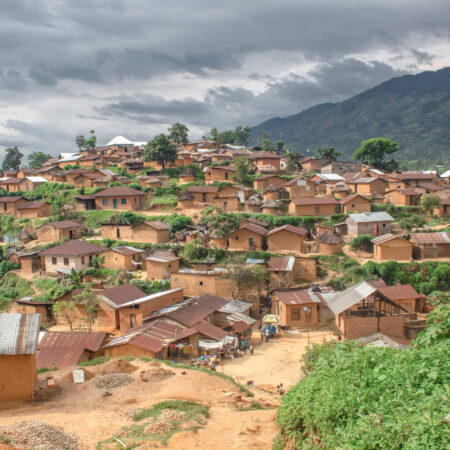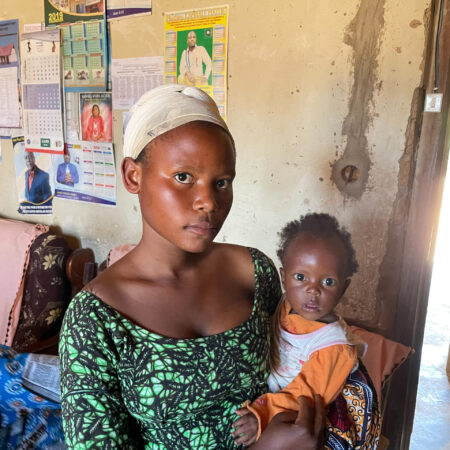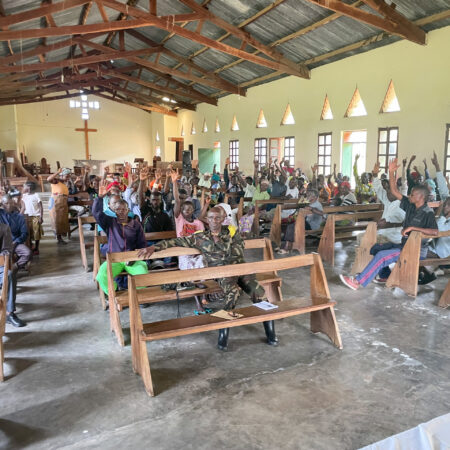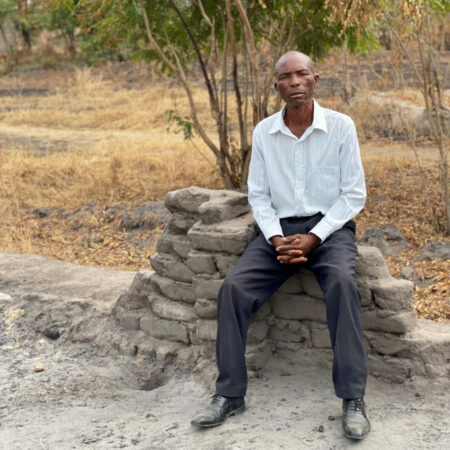Facing ongoing attacks from Islamists trying to eradicate Christians from the region, believers in the Democratic Republic of the Congo ask for prayer from the global body of Christ.
Democratic Republic of Congo – Church Leaders say, “Pray for Us”
Democratic Republic of Congo – Church Leaders say, “Pray for Us”

More than 91% of Congolese identify as Christians, including 19% evangelical, but the country is also home to more than 100 active armed groups, according to the U.N. While many of the armed groups are motivated by tribal, ethnic or political concerns, the Allied Democratic Forces (ADF) has specifically targeted Christians.
Having originally formed in the mid-1990s to wage an insurgency against the Ugandan government, the ADF’s defeat there prompted a shift in focus to the eastern DRC, where the group now seeks to eradicate Christianity and establish an Islamist caliphate. And after the ADF allied itself with the self-proclaimed Islamic State (ISIS) in 2018, its attacks against Christians intensified.
Oicha
A group of 12 pastors had gathered to tell VOM front-line workers about the violent persecution that Christians in the area are experiencing at the hands of Islamists.
One pastor had witnessed the murder of another pastor at the entrance to his church. And another pastor reported that only 11 churches remain of the 54 in his denomination that existed in the area prior to the conflict; he said many of the church buildings were completely destroyed. Similarly, a pastor from a different denomination said their churches had been reduced from 25 a few years ago to just eight today, and six pastors from those churches had been killed.
“The ADF is saying that if we want the war to end, everyone should become Muslim,” one of the pastors said. “If you want the killings to stop, everyone should confess Islam.”

After burning her home and murdering many of her relatives, Islamists abducted Grace and her baby. Front-line workers met with her just one week after her release.
The front-line workers also met with several Christians who had been abducted by the ADF, including a Christian woman named Grace who was forced to witness horrific acts of violence against her family. Grace and her sister-in-law were returning home from fetching water when they saw members of the ADF approaching. The women screamed, dropped their jerry cans filled with water and ran. But Grace fell, and the ADF caught her.
As they beat her with the butt of their guns, she pleaded for mercy. “Please don’t kill me,” she said. “I have a baby.” The gunmen then told her to take them to her child.
Grace led them to her home, where eight relatives, including her infant daughter, were staying. When the rebels ordered everyone out of the house, Grace, who was weak from the beatings, struggled to carry her baby.
Once outside, the Islamists tied up seven of Grace’s relatives and beheaded them with machetes. In a further act of barbarity, they put her family members’ severed heads in boiling water before setting the house on fire and leaving with Grace and her child.
Grace was held captive for several days and moved from one ADF camp to another, where she witnessed more atrocities. Eventually, the Islamists released all of the women with babies, and Grace returned to her mother’s house after days of wandering through the bush.
“Grace had been released just a week before we met her,” a front-line worker said. “Her story was similar to many others we heard. Others who had been abducted shared about people being asked if they were Christians while at the rebel camps. Those who confessed Christ were most often killed.”
Boga
VOM front-line workers drove to a church in the center of town to meet a small group of pastors and community leaders. Within 20 minutes, however, more than 100 people had gathered at the church to share their stories with the visiting Christians. Due to security concerns, the front-line workers were limited to two hours with these believers.

Nearly everyone who met with front-line workers at a church in Boga said they had lost family members in ADF attacks in the past several years.
One Christian taken by the ADF, a man named Matendo, was working in his field in 2021 when rebels abducted him and six others. When the rebels questioned Matendo and the others, they told their abductors that they were Christians who serve in the church.
“Do you know what our purpose is?” one of the Islamists asked. “Our purpose is that everyone becomes Muslim. If you don’t agree, you will lose your life.”
True to their word, the rebels killed one of the Christians, a man named Sayid, and threw the others into a deep hole. Matendo eventually managed to escape, but he recalls few details because of a head injury he suffered in the attack.
When the visiting front-line workers asked those who had gathered at the church how many of them had lost family members in ADF attacks since 2019, nearly everyone raised their hands.
A People of Prayer
Matendo relied on the power of prayer as the Islamists demanded that he renounce his Christian faith. “[The ADF] told us they didn’t want to hear about Christians,” he said. “They wanted all the Christians to turn and become Muslims. It was good for us to continue praying so that we as Christians could continue to have peace. So God helped us. I am here because of the help he has given to me.”

A pastor sits amid the rubble of his church building, which Islamists burned to the ground while church members were inside.
Although the believers in Oicha and Boga have experienced great suffering, they repeatedly asked front-line workers for one thing — prayer. “We are very thankful that you have come,” a Christian in Boga said. “We have suffered a lot. We see you are a people of prayer. Pray more.”
And a pastor in Oicha emphasized the same need. “What we need from you is prayer,” he said. “Pray for us. My hope as a pastor is that these killings do not affect the faith of my church members. When you go back [home], please don’t forget to pray for us.”

